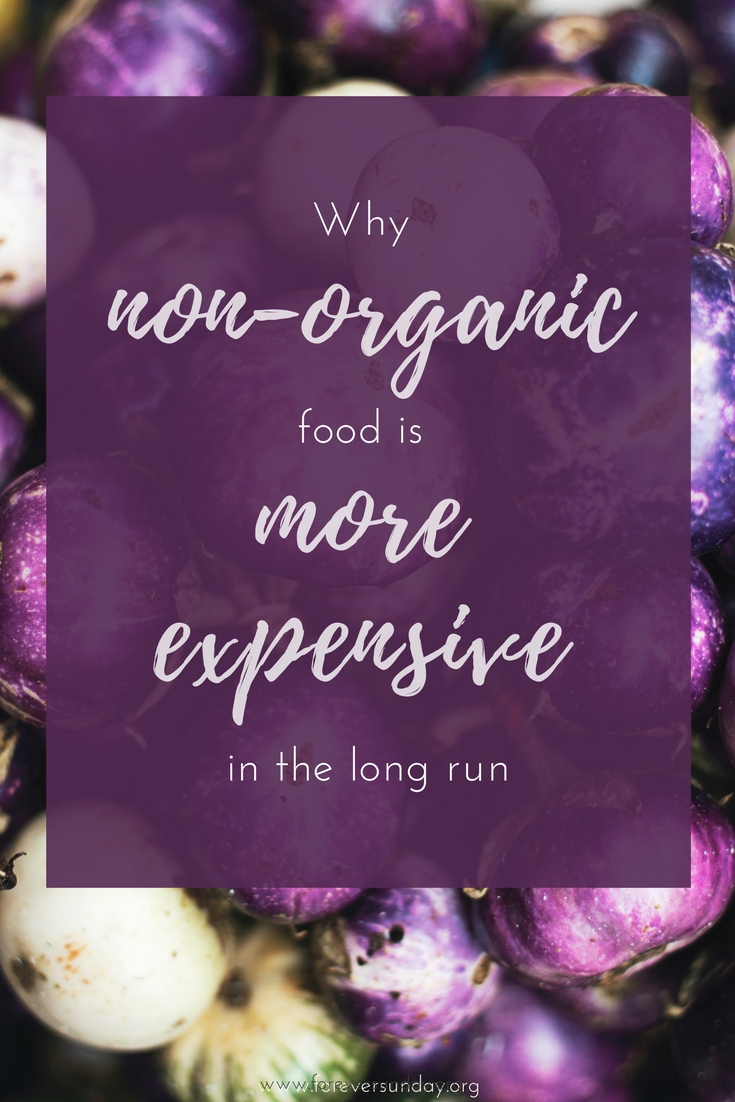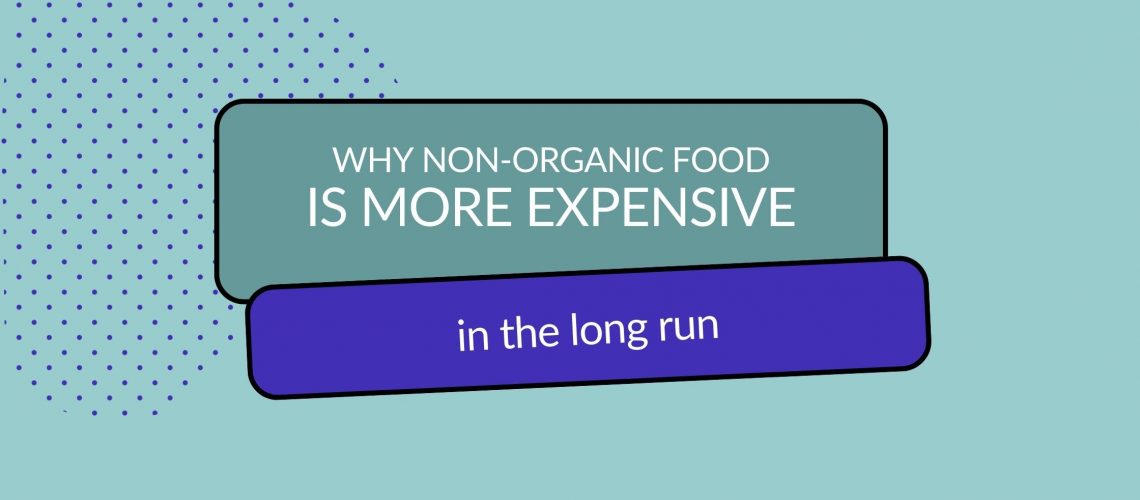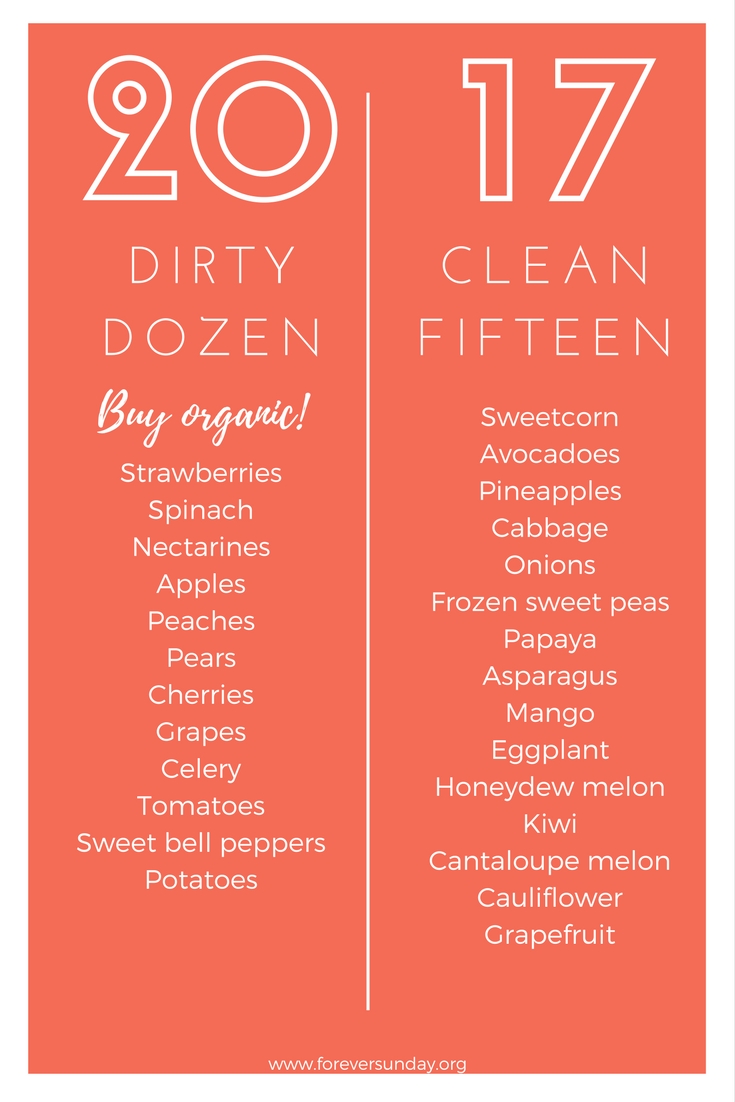
The sale of organic food is rising: availability in supermarkets has increased dramatically over the last years. Hey, even Aldi jumped on the bandwagon and now has a range of organic foods. It’s just: those nice organic tomatoes cost twice as much as “normal” tomatoes. As an avid tomato-eater, it is a big decision for me to choose the organic kind every time I go shopping… In the long run, choosing organic produce over conventionally grown whenever possible impacts your budget, a lot. But does it really?
What is organic food?
First of all, what is organic food? Organic food is grown without GMOs (genetically modified organisms), synthetic (manmade) pesticides and petroleum-based or human sewage sludge-based fertilizers.
Non-GMO
There is a lot of controverse about the safety of GMO foods, but the point is: there isn’t one study that runs long enough to assure there are no long term effects on our health. If you want to be sure…
Also, GMO produce doesn’t grow very well without synthetic pesticides and fertilizers, which brings me to the next topics.
Natural pesticides
Pesticides can be used in organic farming, but only non-chemical, natural pesticides. This means that in organic farming weeds are controlled by methods like crop rotation and weeding. Natural enemies (birds, other insects and micro-organisms) are employed to control harmful bugs, like the ladybug that eats lice.
Natural fertilizers
Organic farmers are only allowed to use manure or compost as fertilizers. I recommend you do some reading on sewage sludge-based fertilizers and you may be an organic convert already!
Health risks of non-organic food
How long did it take for exposure to asbestos to be qualified as a health risk? Tobacco? And how long did it take after that for the government to act and the law to change? Maybe we just don’t have the tools yet to measure the effects of GMOs on our bodies.
Man-made pesticides and weed killers have been linked to hormone-disruption, respiratory problems (asthma), ADHD, autism, gut problems, food allergies, skin problems, neurological disorders (Parkinson’s), memory disorders (Alzheimer’s), higher risk of miscarriage, and cancer.
Will you get cancer if you eat one sprayed apple? Probably not. But even if you wash or peel your food, there is still a residue of pesticide that you are eating. Continue eating minute quantities of pesticides over a lifetime, and it will have an adverse effect on your body. Children may be especially impacted, as their organs and immune system are not fully developed, so we have a big responsibility what we feed them.
In many studies it is proven that organic food has more antioxidants, which actually helps us fight disease.
Environmental impact
Synthetic pesticides and fertilizers leave the soil dead. There are no more harmful bugs, but there are no more bugs at all (bye bye bees). It becomes impossible to grow anything in the soil without fertilizing it with more synthetics. These substances leak through to the ground water, polluting our drinking water sources and impacting the surrounding areas.
Why non-organic food is more expensive for you in the long run
So it is a bold claim: if you don’t eat organic food, you will spend more money in the future.
Money you spend on health care will go up as you are at a higher risk of cancer and other debilitating diseases. Not only your wallet suffers, your quality of life will too.
As the environment struggles, foods that are dependent on bees for pollination will become extremely expensive or worse: extinct (no more avocados, chocolate or coffee) (you see why I am worried here…).
Our drinking water will need more treatment to make it safe. It is not farfetched to think that costs for cleansing the earth and drinking water will come back to us through extra taxes that we have to pay in the future.
All these things will add up for sure.
What can you do?
I’ve heard the argument before: what difference will it make if I buy organic? Everybody else doesn’t. If that were true, there wouldn’t be any supermarkets stocking organic produce. People want it and the more it is available, the more people will want it.
Every euro or dollar you spend on organic food will help organic farmers earn a living, helping other farmers to choose the sustainable way of farming and it will help you save money in the long run.
And what’s more, organic fruits and veg are so much better tasting than their conventionally grown counterparts (ugh, water tomatoes) ;-)
Start small
It is probably unrealistic to change your eating patterns drastically, but you can start making small changes. You may have heard of the “Dirty Dozen”: they are the 12 foods that have the most pesticide residue on them and are best to buy organic. The “Clean Fifteen” are least likely to contain pesticide residue and you can choose to buy conventionally grown. This is the 2017 list:
Dirty Dozen: buy organic
(number one is the one with the highest probability to contain pesticide residue, and the list goes on in decreasing order)
- Strawberries
- Spinach
- Nectarines
- Apples
- Peaches
- Pears
- Cherries
- Grapes
- Celery
- Tomatoes (heya!)
- Sweet bell peppers
- Potatoes
The list continues here.
Clean Fifteen:
Buy conventionally grown if you like but check labels!
- Sweetcorn
- Avocadoes
- Pineapples
- Cabbage
- Onions
- Frozen sweet peas
- Papaya
- Asparagus
- Mango
- Eggplant
- Honeydew melon
- Kiwi
- Cantaloupe melon
- Cauliflower
- Grapefruit
The list continues here.
What about meat?
Organic meat comes from animals that are not given antibiotics or growth hormones. Ingesting antibiotics through meat may impact how you respond to antibiotics if you need to take them yourself to fight a disease. We know that when you take a lot of antibiotics, they will become less effective, and you will need to take more or stronger antibiotics to get better.
Organically grown animals are much more likely to have had a happier life (less stress hormones) as they get organic food and have to have access to the outside (at least partially).
If you do have to eat meat, cheese or eggs and drink milk, definitely try to buy the best quality possible.
Do you eat organic food?




